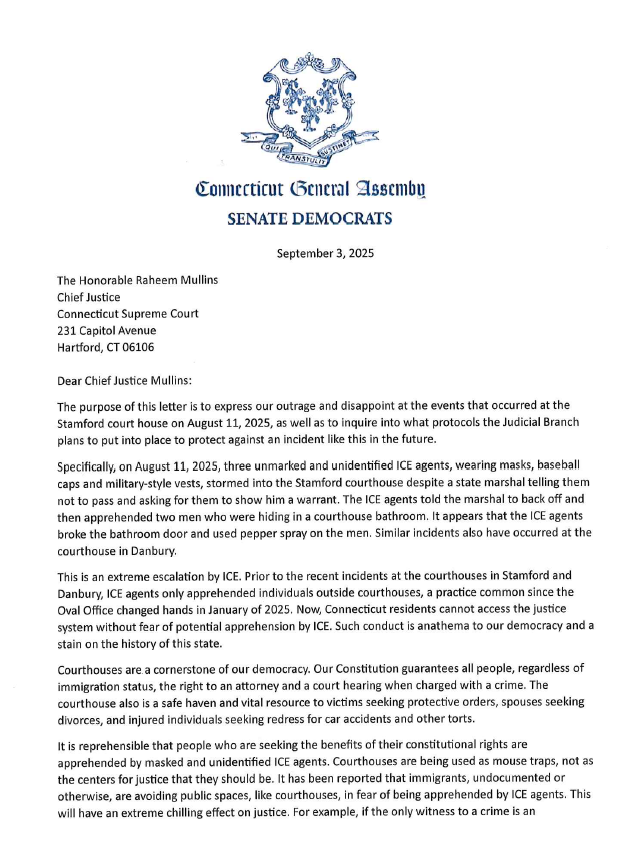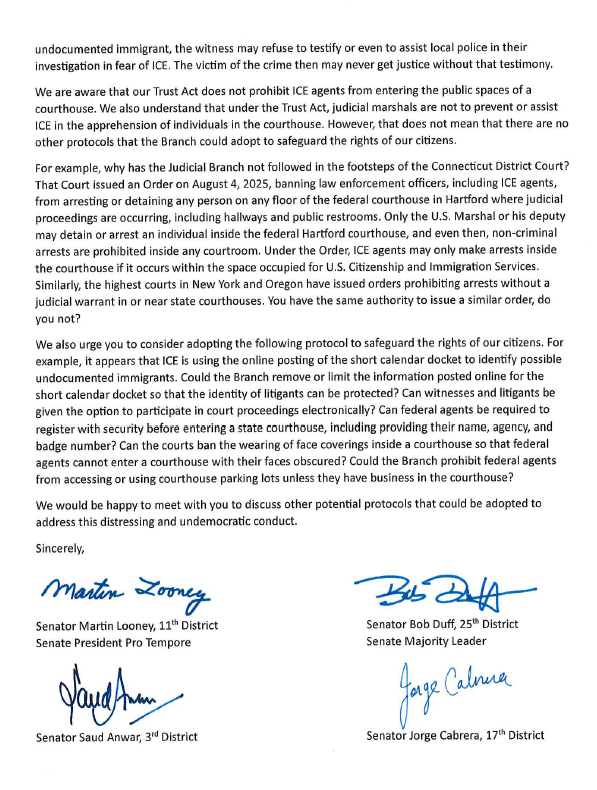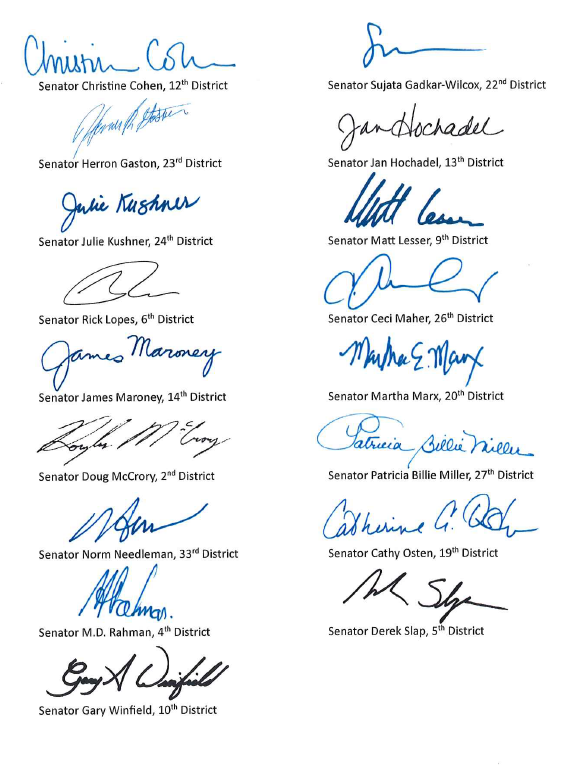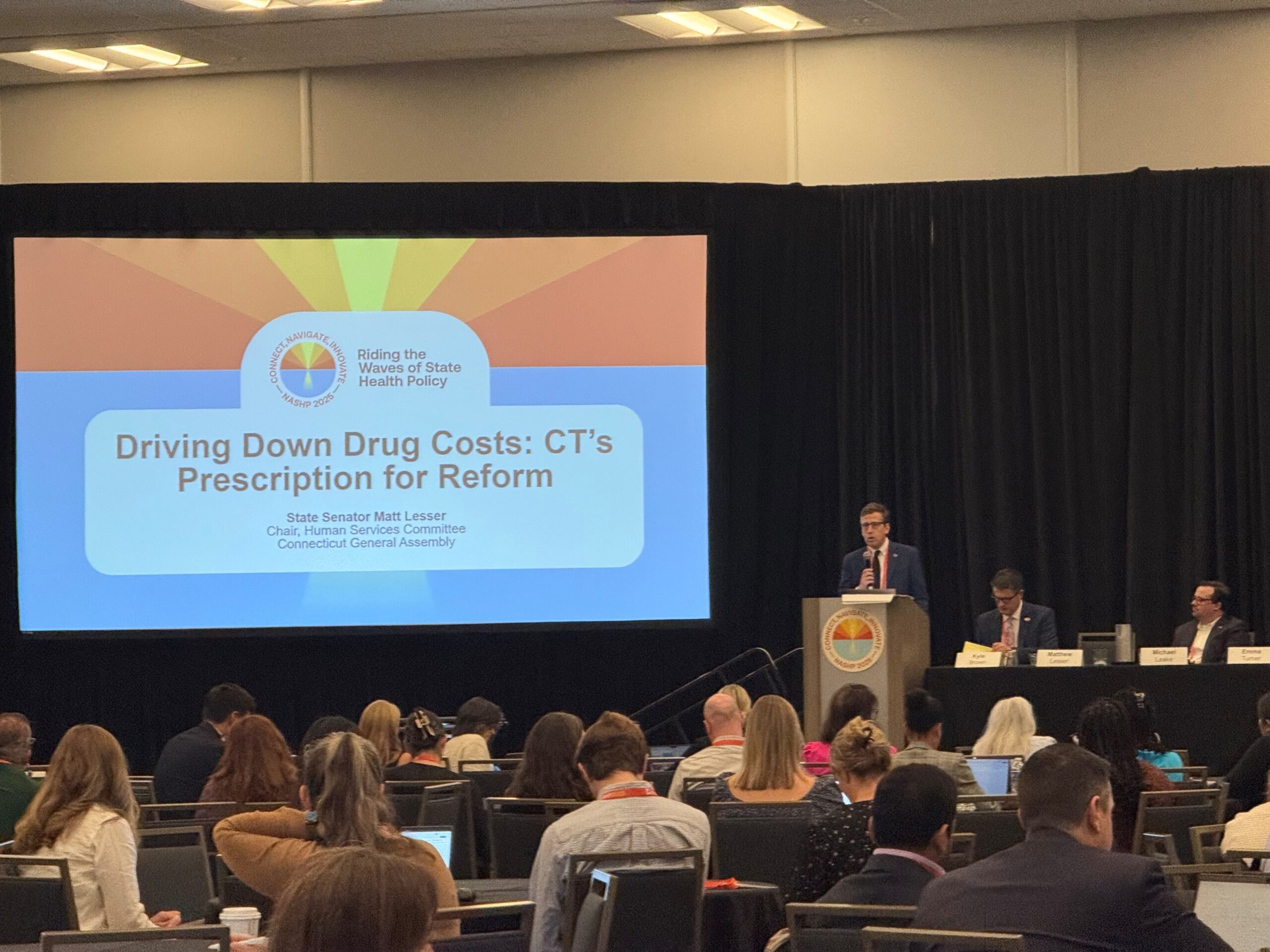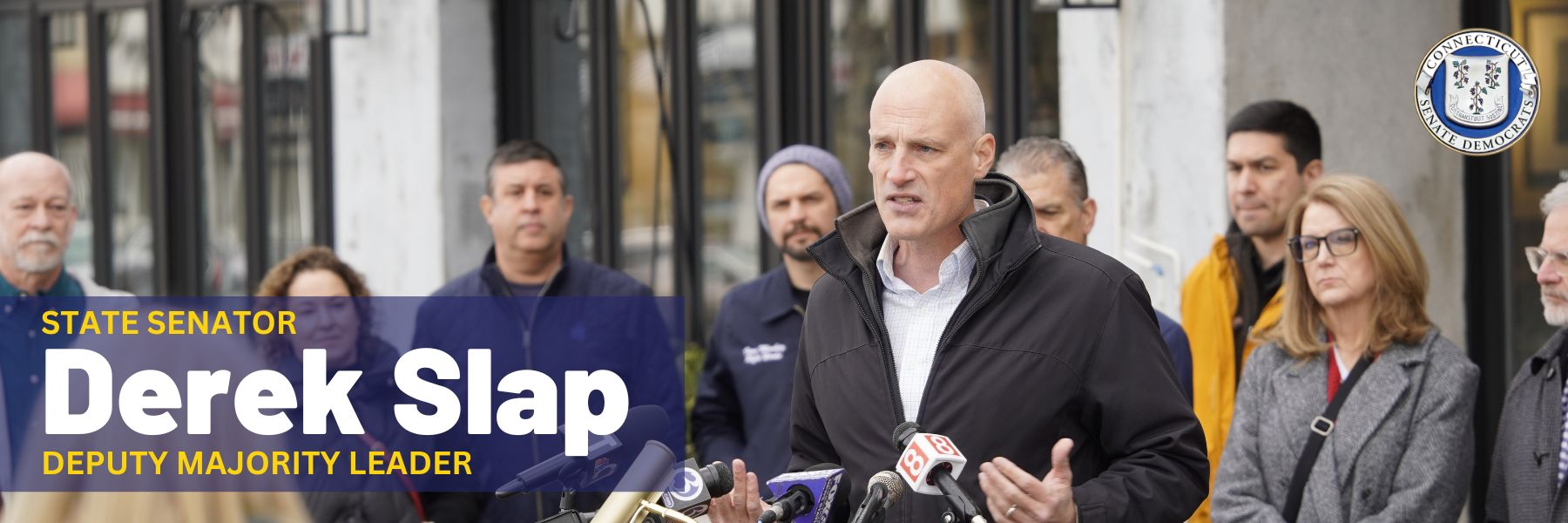
Following Courthouse Escalation from ICE, Senate Democrats Ask CT Chief Justice for Increased Protections
HARTFORD – In the midst of videos and reports this month showing ICE agents storming Connecticut courthouses to make arrests, ignoring standard conventions and escalating their behavior, Connecticut Senate Democrats this week addressed a letter to Connecticut Supreme Court Chief Justice Raheem Mullins asking for increased protections for members of the public against undue detainment.
The Senators refer to a Connecticut District Court order filed August 4 banning law enforcement from arresting or detaining any person within the federal courthouse in Hartford, where judicial proceedings are occurring, among other potential points of response.
The letter comes specifically after reports of three unmarked and unidentified ICE agents with covered faces stormed into the Stamford courthouse on August 11, ignoring the orders of a state marshal asking them for a warrant and arresting two men in a courthouse bathroom, using pepper spray on them in the process.
Eyewitness reports indicate that ICE agents used similar behavior in a Danbury courthouse on August 14, threatening to use pepper spray and Tasers on individuals, asking them if they had warrants, according to the New Haven Register.
“This is an extreme escalation by ICE,” the Senators wrote, adding it’s the first time they’re aware of ICE agents arresting someone inside a courthouse in Connecticut. Before the second Trump administration, ICE arrests routinely took place outside courthouses.
“Courthouses are a cornerstone of our democracy,” the Senators wrote. “Our Constitution guarantees all people, regardless of immigration status, the right to an attorney and a court hearing when charged with a crime.” They noted courthouses are also safe havens and needed resources for victims seeking protective orders, spouses seeking divorces, and other members of the public seeking relief.
The noted escalation of behavior by ICE agents, the Senators say, means “courthouses are being used as mouse traps,” with a chilling effect of making immigrants – including ones in the country legally – avoid public spaces in fear of arrest or detainment. This harms public safety, they said.
“For example, if the only witness to a crime is an undocumented immigrant, the witness may refuse to testify or even to assist local police,” the Senators wrote, leaving the victim of the crime without justice.”
While the Trust Act in Connecticut does not prevent ICE agents from entering courthouses, nor does it allow judicial marshals to prevent or assist ICE in apprehending individuals, the Senators drew attention to the Connecticut District Court order, as well as similar orders in New York and Oregon, prohibiting arrest without judicial warrant in or near state courthouses. They asked Chief Justice Mullins if, with similar authority to make such an order, if he would.
The Senators further noted further ways to curtail unlawful ICE arrests in courthouses, including changing docket publication to limit ICE access to lists of names used to identify potential detainees, offering witnesses and litigants the ability to participate in court electronically, or requiring federal agents to register with security before entering a courthouse, including giving name, agency and badge number.
The full letter can be found here and is reprinted below:
